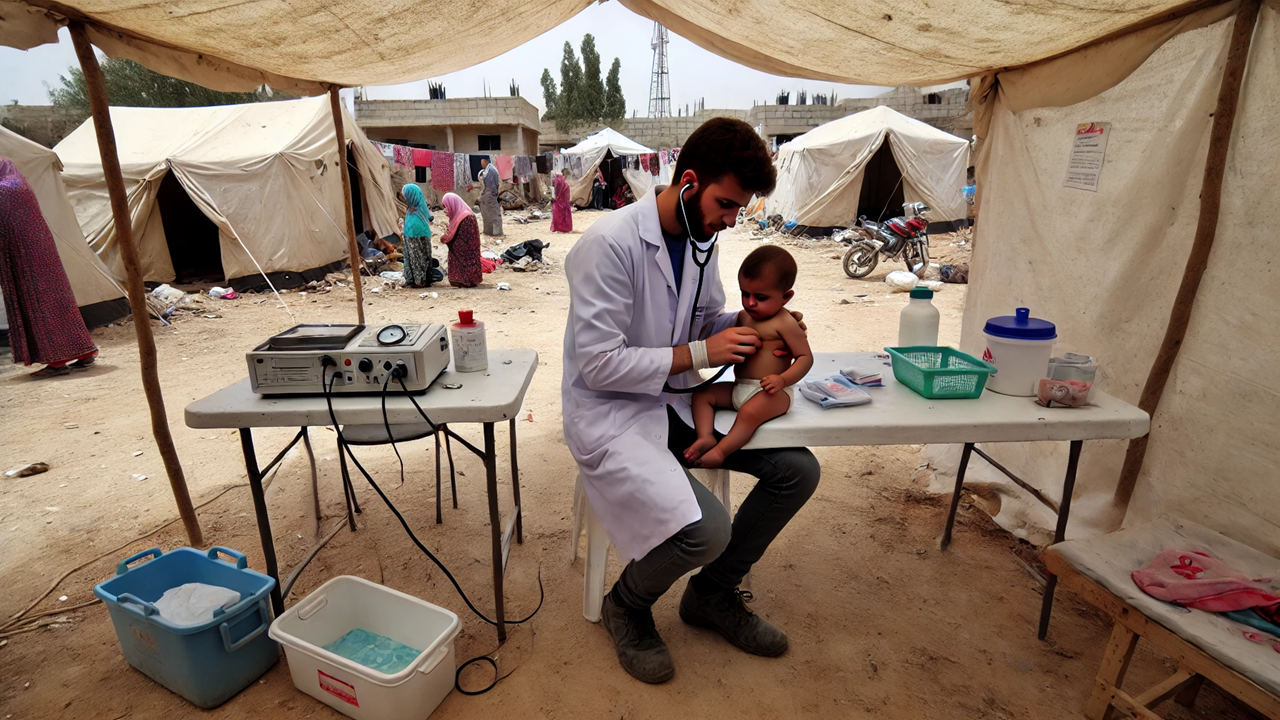New Report Calls to Enhance Health Access and Resilience for All Communities in Uganda
The report highlights the urgent need to enhance the capacity of health workers, improve access to essential medical resources, and foster stronger coordination among stakeholders.

A new report titled “Refugee and Migrant Health System Review: Challenges and Opportunities for Long-term Health System Strengthening in Uganda” advocates for a comprehensive approach to fortifying Uganda’s health system. The report highlights the urgent need to enhance the capacity of health workers, improve access to essential medical resources, and foster stronger coordination among stakeholders. These initiatives aim to establish a more resilient and inclusive health system that effectively serves refugees, migrants, and host communities while laying the groundwork for long-term sustainability.
This pivotal report was produced through collaborative efforts involving Uganda’s Ministry of Health (MoH), the World Health Organization (WHO), the United Nations High Commissioner for Refugees (UNHCR), and the International Organization for Migration (IOM).
The launch event, officiated by Dr. Jane Ruth Aceng, Uganda's Minister of Health, was attended by notable figures including Dr. Santino Severoni, WHO Director of Health and Migration; Dr. Moeti Matsidiso, WHO Regional Director for Africa; and Mr. Matthew Crentsil, UNHCR Country Representative in Uganda. The hybrid event, held in Kampala and online, gathered key stakeholders from the Ugandan government, UN agencies, donors, and other partners to discuss the report’s findings and catalyze further action and resource mobilization.
Importance of Policy Improvements
During the launch, Dr. Aceng emphasized the necessity of improving existing policies to ensure equitable access to health services for migrants and all Ugandans. She stated, “To ensure that Uganda has a strong health system able to meet the needs of its entire population, it is crucial to further improve existing policies and strategies.”
Comprehensive Health Package for Refugees
In March 2024, WHO, in collaboration with the MoH and UNHCR, conducted a joint review mission to assess Uganda's health system response to refugees. The findings indicate that the Ugandan government supports refugees through policies that promote freedom of movement, integration, and access to essential services such as healthcare. Refugees and asylum seekers are provided with a comprehensive health package, including emergency care, psychological first aid, and ongoing access to primary healthcare services once settled.
While the report praises the integration of refugees into national services, it also highlights significant challenges, including:
Recurrent stockouts of essential medicines and supplies
Cultural and language barriers between refugees and healthcare teams
Limited resources for recruiting and managing the necessary health workforce in facilities
The report suggests several key actions to enhance Uganda’s healthcare system, such as:
Integrating refugees and addressing the specific needs of both migrants and host communities.
New funding strategies and the creation of a comprehensive health insurance system.
Incorporating traditional healers into health systems.
Strengthening intersectoral collaboration with other ministries to address broader health determinants.
Dr. Severoni remarked, “Uganda's leadership in integrating refugees and migrants into the health system is a model of solidarity in action, ensuring access to essential health services for all.”
Similarly, Dr Matsidiso noted that “countries should use the potential of migrants and refugees to contribute to the task force of service delivery, leveraging their skills and experiences.”
Ongoing Collaboration and Commitment
Efforts to strengthen Uganda’s health system based on the report's recommendations are already underway. In March 2024, UNHCR and WHO signed a Letter of Understanding to enhance their collaboration in supporting Uganda’s government in improving health services for migrants, refugees, and host communities. Mr. Crentsil emphasized that “this partnership aims to reinforce the rights and health of people forced to flee while supporting Uganda's efforts to achieve the 2030 Sustainable Development Goals.”
Uganda's commitment to hosting millions fleeing conflict and hardship and its efforts to integrate and protect refugees and migrants stand out as remarkable. The country's open-door policy and Comprehensive Refugee Response Framework serve as exemplary models for providing safety, dignity, and hope, highlighting the importance of an inclusive health system for all. As the world navigates complex migration issues, Uganda's experience offers valuable lessons in solidarity and resilience.
- READ MORE ON:
- Uganda










